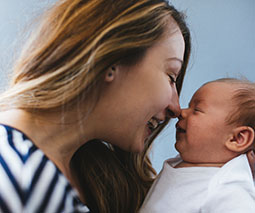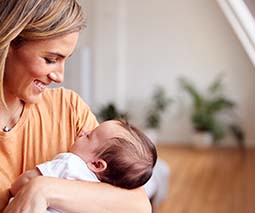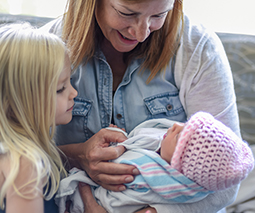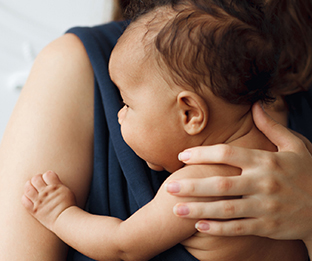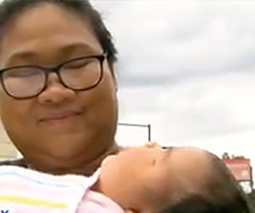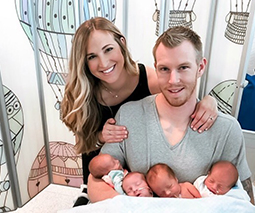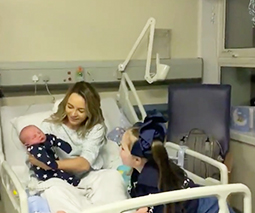Expectation vs reality: How parenting REALLY changes with baby number two
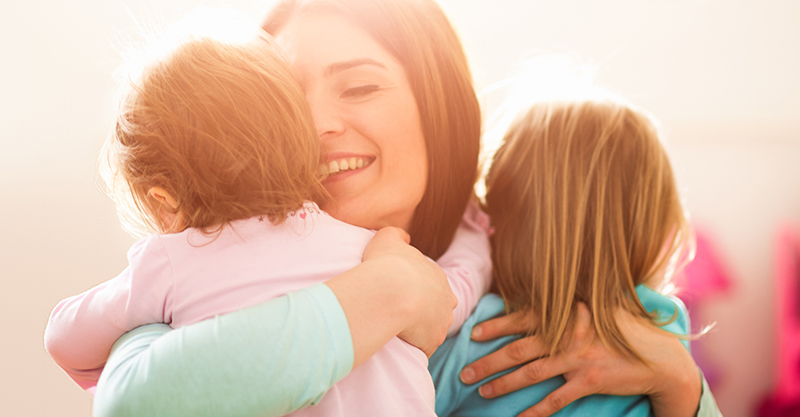
I had the best time being a mum to my firstborn. I loved our little life together when it was just the two of us going about our day. My whole world centred around him and giving him my undivided attention was easy. We played together, went for long walks together and cuddled for hours.
Life was so good with a baby that I went for number two as soon as possible. And when I brought that baby girl home, I quickly realised that this experience was going to be completely different.
Things got complicated
Life stopped being simple and instead I had to juggle my time and attention between two little people that needed me constantly. While I loved being their mum very much, I know my second baby had a totally different experience than my first.
For example, with my first, going on outings and to playgroups was a breeze, because I only had to consider one baby’s needs. Add a second baby in, and getting out of the house altogether became virtually impossible in those early months.
A recent study has confirmed that I’m not alone in thinking this. It observed 55 mothers as they interacted with baby number one at 20 months of age, compared with baby number two at the same age, and found that mothers demonstrated different parenting behaviours with their second baby.
Read more about baby number two:
- 9 things you probably won’t do as a second-time mum
- “I won’t love this baby as much!” 5 fears we all have before baby number two
- The day I realised two kids is sometimes easier than one
Attention becomes divided
The study found that first-born children were more sociable and emotionally available to their mothers, presumably as they had each other’s undivided attention. This just isn’t possible with a second baby, as mums have to divide themselves between two little people. The study also suggested that mothers engaged in more play with their firstborns compared with their second babies, who would have to share their mother’s time.
The results also demonstrated that siblings behave differently at 20 months of age because of these subtle differences in parenting. Obviously, temperament comes into play here but admittedly, my second baby was a lot more vocal (read: noisy) in getting her needs met than her big brother. Health professionals told me that this was her way of making sure I gave her attention. Hmm … it seems like they were right.
Baby number two still wins
Life with baby number two is entirely different from baby number one. Although I sometimes worry that she got less attention from me when she was a baby, I also try to remember that she had a sibling to keep her busy back then too. So while she had a mum whose time was divided between two children, she also had a curious and loving big brother to help fill in the gaps, and the two of them are now the best of friends.
So while she didn’t get me all to herself, she still got a pretty amazing experience.
